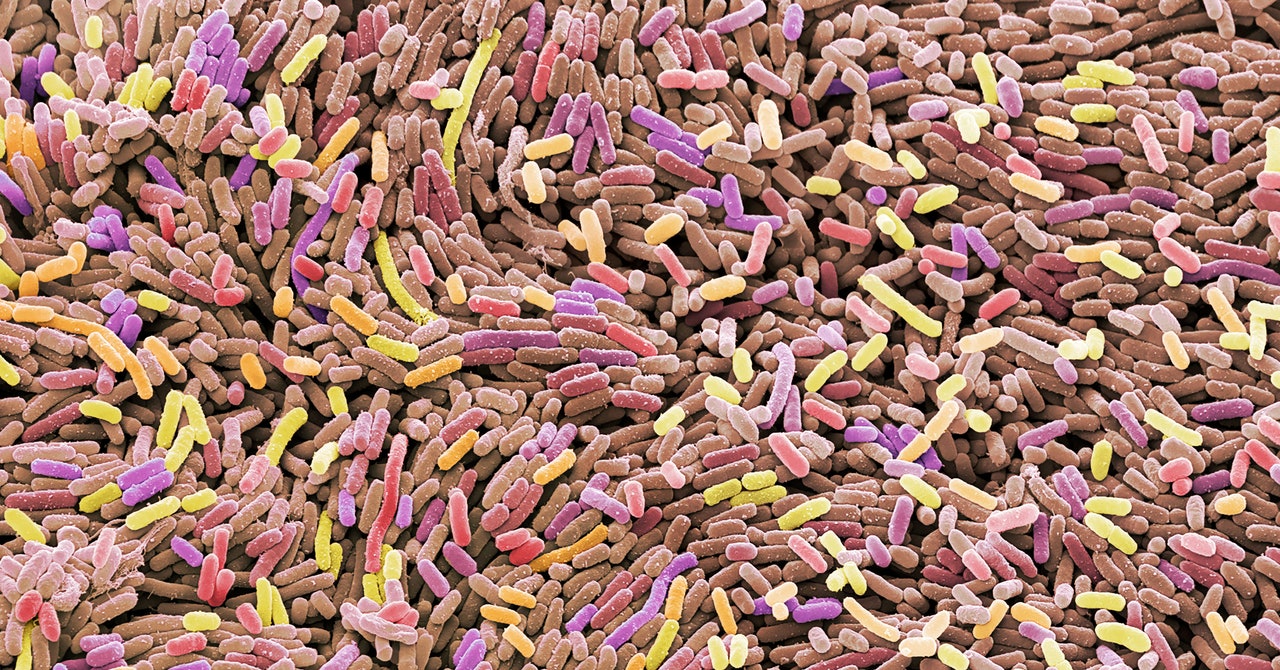[ad_1]
In the muddy trenches of World War I, thousands of soldiers on both sides fell ill with dysentery, a diarrheal disease often spread by contaminated water. Curiously, one German soldier deployed in the Balkans didn’t become sick when the rest of his comrades did. When scientist Alfred Nissle isolated a strain of E. coli from the soldier’s stool in 1917, he found that it had strong protective effects against Shigella bacteria, a cause of dysentery.
Over the past hundred years, this protective strain—now known as E. coli Nissle—has been used as a probiotic to promote gut health and treat gastrointestinal conditions like inflammatory bowel disease. Now, scientists are genetically engineering E. coli Nissle to perform specific functions in hopes of creating a new class of “living” medicines.
In October, Massachusetts biotech company Synlogic announced results from a small study showing that its engineered version of the bacteria provided some benefit to patients with a rare genetic disease called phenylketonuria, or PKU. People with the disorder can’t break down an amino acid called phenylalanine—or Phe for short—which is found in high-protein foods like meat and eggs. If left unchecked, phenylalanine can build up in the brain and cause intellectual disability, seizures, and behavioral symptoms.
In the Phase 2 trial, the company showed that its engineered bacteria, which 20 volunteers drank mixed into liquid, lowered levels of that amino acid. While the study hasn’t yet been published in a peer-reviewed journal, the results point to a new way of treating disease, says Timothy Lu, an associate professor of biological and electrical engineering at MIT and cofounder of Synlogic: “Similar to how you might program a computer, we can tinker with the DNA of bacteria and have them do things like produce a drug at the right time and the right place, or in this case, break down a toxic metabolite.”
PKU is typically treated with a carefully restricted low-protein diet. Newborns who test positive are placed on a special formula as soon as possible. Children and adults with the disease must avoid meat, fish, eggs, and dairy products, and many continue to drink a medical formula or take supplements to make sure they’re getting enough nutrients. The disease varies in severity, with some patients being able to consume just a few grams of protein a day. (A piece of plain white bread contains 1 or 2 grams of protein.) There are two drugs approved to treat PKU, but one isn’t widely used because it can cause a serious allergic reaction, and the other only helps people with a certain type of PKU.
Aoife Brennan, president and CEO of Synlogic, says the company wants to help patients have more freedom in what they can eat. “They understand the importance of keeping their Phe in control for their brain health. But what they really want is some relief from this incredibly strict diet,” she says.
To that end, scientists at the company genetically engineered E. coli Nissle to produce an enzyme found in plants, yeast, and other bacteria whose job is to gobble up phenylalanine. They also removed a gene from the bacteria so that it wouldn’t replicate in the gut. This was to ensure that the bacteria won’t permanently take up residence and potentially cause gastrointestinal problems later on. The engineered bacteria is cleared from the GI tract in a week, Brennan says.
[ad_2]
Image and article originally from www.wired.com. Read the original article here.

